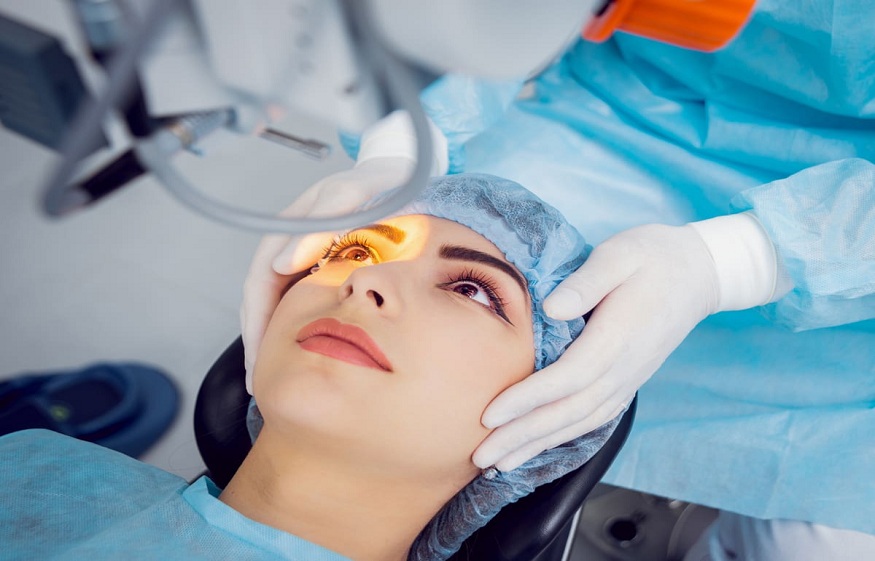Clear vision is essential for maintaining a high quality of life, and advancements in eye care have made vision correction more accessible and effective than ever. Two of the most popular procedures for improving eyesight are LASIK eye surgery and laser cataract removal, both of which are widely available in Michigan. These advanced treatments offer life-changing benefits, allowing individuals to reduce dependence on glasses and contact lenses while improving overall eye health.
Understanding LASIK Eye Surgery in Michigan
LASIK eye surgery is a cutting-edge procedure that reshapes the cornea to correct refractive errors such as nearsightedness, farsightedness, and astigmatism. It has gained popularity due to its quick recovery time, minimal discomfort, and long-lasting results.
How LASIK Works
LASIK is performed using a specialized laser to create a thin flap in the cornea. Once the flap is lifted, another laser is used to reshape the underlying corneal tissue, correcting the eye’s ability to focus light properly. The flap is then repositioned, where it naturally adheres without the need for stitches.
Benefits of LASIK Surgery
- Improved Vision: Most patients achieve 20/20 vision or better, reducing or eliminating the need for glasses or contact lenses.
- Quick Recovery: Many individuals notice a significant improvement in their vision within 24 hours after surgery.
- Long-Term Results: The procedure offers permanent vision correction for most people, with only minor changes due to natural aging.
- Minimal Discomfort: The surgery is virtually painless, and numbing eye drops are used to enhance comfort.
- High Success Rate: LASIK has been performed successfully on millions of patients, making it one of the safest elective surgeries available.
Who is a Good Candidate for LASIK?
Not everyone is eligible for LASIK eye surgery. Ideal candidates typically meet the following criteria:
- At least 18 years old with a stable vision prescription
- Free from eye diseases such as glaucoma or severe dry eye syndrome
- Have sufficient corneal thickness for the procedure
- In good overall health without autoimmune conditions that affect healing
For those who are not ideal candidates for LASIK, alternative procedures such as PRK (photorefractive keratectomy) may be recommended.
Laser Cataract Removal: A Revolutionary Approach to Restoring Vision
Cataracts are a common age-related condition that causes clouding of the eye’s natural lens, leading to blurry vision and difficulty seeing in low light. Laser cataract removal is a highly advanced technique that improves precision and safety compared to traditional cataract surgery.
How Laser Cataract Surgery Works
This procedure uses a femtosecond laser to make precise incisions in the eye, soften the cloudy lens, and remove it with minimal disruption to surrounding tissue. A clear artificial lens, known as an intraocular lens (IOL), is then implanted to restore vision.
Advantages of Laser Cataract Removal
- Greater Precision: The laser creates highly accurate incisions, improving surgical outcomes.
- Enhanced Safety: The procedure minimizes the risk of complications by reducing stress on the eye.
- Improved Vision Clarity: Patients experience sharper, brighter vision after the removal of cataracts.
- Faster Recovery: Many individuals return to normal activities within a few days.
- Customizable Results: Various types of intraocular lenses can be selected to correct refractive errors, such as astigmatism or presbyopia.
Who Should Consider Laser Cataract Surgery?
Cataracts typically develop gradually, causing:
- Blurred or cloudy vision
- Increased sensitivity to light and glare
- Difficulty reading or recognizing faces
- Fading or yellowing of colors
- Poor night vision
If cataracts begin to interfere with daily activities, laser cataract surgery is an excellent solution for restoring clear vision.
Choosing the Right Procedure: LASIK vs. Laser Cataract Removal
Both LASIK and laser cataract removal offer life-changing benefits, but they serve different purposes.
| Feature | LASIK Eye Surgery | Laser Cataract Removal |
| Purpose | Corrects refractive errors (nearsightedness, farsightedness, astigmatism) | Removes cataracts and restores clear vision |
| Best For | Younger individuals with healthy eyes looking to reduce dependence on glasses | Older adults experiencing cataract-related vision problems |
| Procedure | Reshapes cornea with a laser | Replaces the eye’s natural lens with an artificial lens |
| Recovery Time | Most patients recover within 24-48 hours | Typically a few days to a couple of weeks |
| Results | Permanent vision correction | Permanent removal of cataracts with potential additional vision correction |
Finding the Right Eye Care Provider in Michigan
If you are considering LASIK eye surgery or laser cataract removal in Michigan, choosing an experienced and reputable eye surgeon is crucial. Here are some tips for selecting the best provider:
- Board Certification: Ensure the surgeon is certified by a recognized medical board specializing in ophthalmology.
- Technology and Techniques: Look for clinics that use the latest laser technology and advanced surgical techniques.
- Patient Reviews and Testimonials: Check online reviews and ask for patient testimonials to gauge the surgeon’s expertise and results.
- Personalized Consultation: A thorough eye exam and consultation will determine if you are a suitable candidate for the procedure.
- Post-Surgical Care: Ensure the provider offers follow-up visits and care to monitor your recovery.
Advancements in eye care have made procedures like LASIK eye surgery and laser cataract removal highly effective solutions for improving vision. Whether you’re looking to eliminate glasses or restore clarity from cataracts, these treatments can significantly enhance your quality of life. If you’re in Michigan and considering vision correction, consulting a trusted eye specialist can help determine the best option for your needs.




